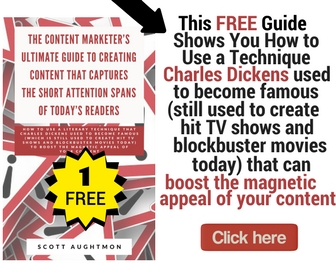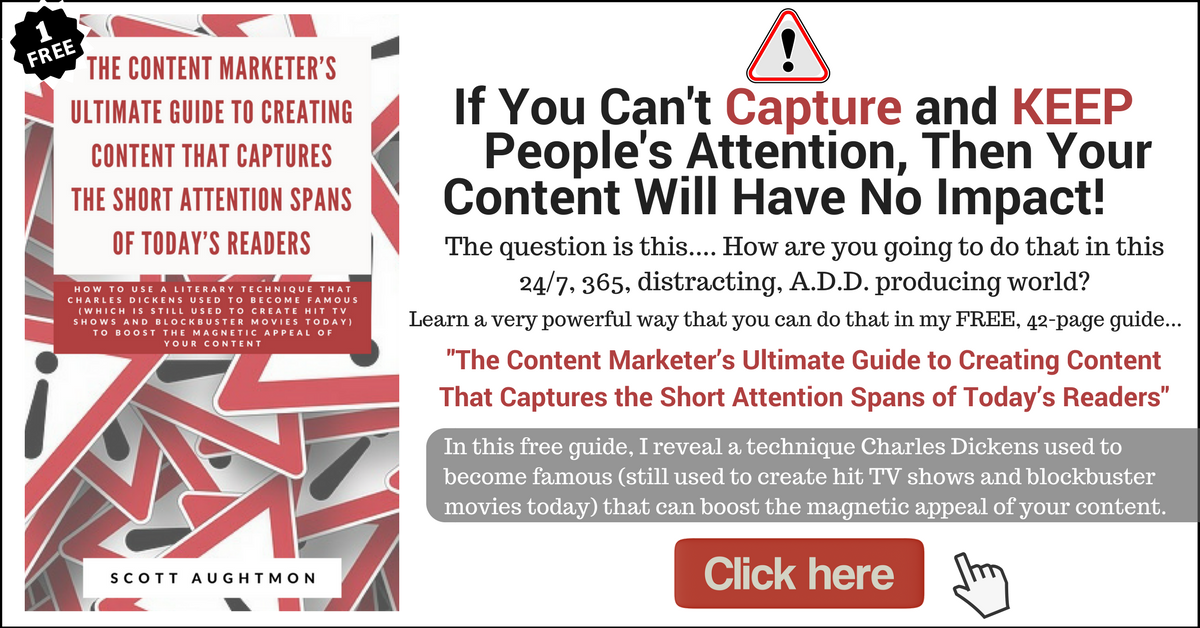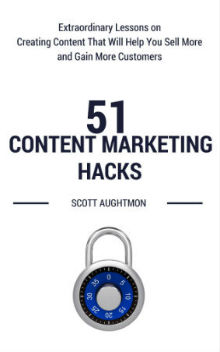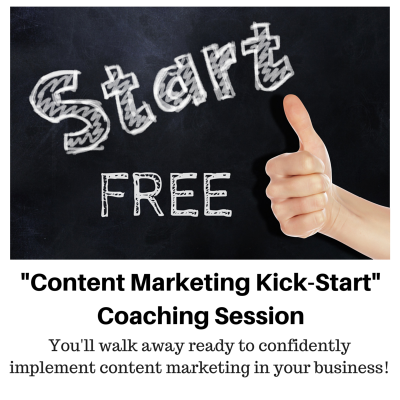In my last post, I asked you an usual question to be asked in a business context. I asked you… “Do you love your customers?”
Well, today I want to ask you another strange, but powerful question. It’s a question that can begin to help us see how we could move closer towards actually loving our customers.
But first, I want to share something with you.
In the famous book, “How To Win Friends And Influence People” Dale Carnegie says…
“People are not interested in you. They are not interested in me. They are interested in themselves – morning, noon and after dinner.” Later he says… “Why should people be interested in you unless you are first interested in them?”
We need to understand that deep down all of us crave to be treated like someone important – someone who matters.
Later in the book Dale shares a story that proves his point.
He tells about a researcher on coast to coast airplane flight who tried an experiment. He only asked questions to the person sitting next to him- for 6 hours!
When the person the researcher was talking to, got off the plane, they found out they were a part of an experiment. They were asked what they thought about the researcher and they all said they thought he was a really good conversationalist!
All he did was ask questions and let THEM talk! And THAT is what made him a good conversationalist!
Why? Because people become interested in you when they realize you are interested in them.
That leads me to the other strange question I told you about. Are you ready? Here it is…
Are you running an “I-It” business and an “I-You” business?
If you have no clue what I’m talking about (which I’m guessing is most of you) then listen to this story that Daniel Goleman tells in his book “Social Intelligence” and you’ll see what I mean.
Daniel says…
A woman whose sister had recently died got a sympathy call from a male friend who had lost his own sister a few years before. The friend expressed his condolences, and the woman, touched by his empathic words, told him poignant details of the long illness her sister had suffered, and she described how bereft she felt at the loss.
But as she talked, she could hear the clicking of computer keys at the other end of the line. A slow realization dawned: her friend was answering his email, even as he was talking to her in her hour of pain. His comments became increasingly hollow, perfunctory, and off-point as the conversation continued.
After they hung up, she felt so dejected that she wished he had never called at all. She’d just had a gut punch of the interaction that philosopher Martin Bueber called “I-It”.
“I-It” is when we treat someone more as a thing than as a person.
The Austrian Born psychologist wrote about “I-It” in his book in 1937 called “I-You”.
In “I-You”, Bueber wrote that an “I-It” person has no attunement to the other’s subjective reality, feels no real empathy for the other person.
He said an “I-You” relationship is a special bond, an attuned closeness that’s often – but not always – found between husband and wives, family members, and good friends.
Daniel Goleman goes on to say…
“The emotional indifference and remoteness of an I-It relationship stands in direct contrast to the attuned I-You. When we are in I-It mode, we treat other people as a means to some other end. By contrast, in the I-You mode our relationship with them becomes an end in itself.”
The sad reality is that many businesses live, move, and breathe in “I-It” mode. After an experience with them we feel more like an “it” than a “you”.
It’s an expectation that causes us to approach them suspiciously – with our guard up. It makes us cautious of doing business with them again. And if the experience is bad enough – we even warn others to stay clear!
But when we’re actually treated as a “I-You” by a business, we’re so shocked and surprised that we drop our guard. We open our hearts to them and what they’re selling – and even go tell the world about our amazing experience!
You see? There’s a HUGE, powerful affect you and your business can have on people if you just started treating others as “Yous!” And the amazing part is that the same response will start echoing back at YOU!
Robert Cialdini talked about this idea of people responding back in the way you do to them. He calls it “The Rule of Reciprocation”. In his book “Psychology Of Influence”, he tells this story to explain it…
A few years ago a University Professor tried a little experiment. He sent Christmas cards to a sample of perfect strangers. Although he expected some reaction, the response he received was amazing – holiday cards addressed to him came pouring back from the people who had never met nor heard of him. The great majority of those who returned a card never inquired into the identity of the unknown professor. They received this holiday greeting card, click, and whirr, they automatically sent one in return.” Cialdini says, “While small in scope, this study nicely shows the action of one of the most potent of the weapons of influence around us – the rule for reciprocation. The rule says that we should try to repay, in kind, what another person has provided for us.”
When we start treating people the way we want to be treated, we start getting treated the way we want to be treated! It’s like magic! 🙂
People are craving and fiending for someone – anyone – to treat them as “Yous”!
People are looking for empathy.
They don’t want you sympathy – for you to feel sorry for them. They want to feel understood!
That’s what you want, isn’t it? You want other people to feel what you do, so you know they understand.
If you and your business give that to other people they’ll love you and do almost anything for you!
I know some of you are probably thinking, “This is all great, in theory, but is it really possible to apply this in my business?” I’m glad you asked! 🙂
I want to share one last story that shows you the real power and impact of a business that treats their customers as “I-Yous.”
Scott Stratten shares a story in his new book, “Unmarketing” that proves that a business can live out what I’m sharing with you today.
He tells the story about Zappos.com – the famous online shoe store.
Scott shares the story of about a person who ordered multiple pairs of shoes for his mother. She was ill and in the hospital, and he didn’t know the exact size that would fit her, so he ordered 9 different pairs.
He planned on having her try them on, so he could pick the right pair and send the rest back. But things didn’t go as planned.
His mother ended up dying and he later realized, after the normal “return” window of time, that he still had the shoes. Because they cost him a significant amount of money, he decided to contact Zappos and see if they’d still give him a refund.
He called in and shared his story and to his amazement the customer service rep said they’d take back the shoes. The rep worked out a time to send a UPS truck to come get the shoes and the full amount he paid was put back onto his card.
But that wasn’t the real shock for this customer. The real jaw-dropping moment came when the delivery truck came to collect the shoes.
The delivery truck driver had brought along a bouquet of flowers with the deepest sympathies from the customer service rep he spoke to on the phone!
Now THAT is an example of a business treating a customer as an “I-You!” That customer service rep treated this man as a person, not as an it. He didn’t worry about the costs of taking back the shoes. He didn’t worry about putting the money back on the man’s card.
He just put himself in this man’s place and treated him how he would want to be treated if his mother had died.
But that’s not the end of the story!
The customer was so overwhelmed by the way he was treated that he blogged about it and his post was read by thousands!
If we, our business, and our employees started treating other people the way we want to be treated – starting loving others like we love ourselves – we would be surprised at the way people respond back to us!
That’s the power of an “I-You” business.
Feedback?
What do you guys think about this “I-You” idea? Do you have any other ideas or examples about how to apply it in our business?
Coming Tomorrow
Stay tuned. In my post tomorrow, I’ll give you 4 ways we can live an “I-You” life and have an “I-You” business.
Until then…
If you thought this post is worthy, can you please do me a favor?
Please share this post. Choose any (or all) of the “Share This” options below.
Or here’s the link you can post on your blog: http://wp.me/pfeEX-gT
Thanks,
Scott @rampbusinesses







No Pings Yet